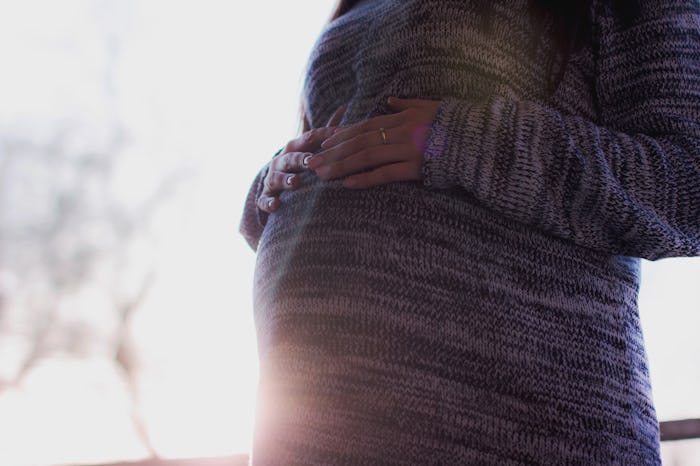Life
Domestic Violence Doubles The Risk Of Pre-Mature Birth, Proving We Need Better Support Systems
Domestic violence is sneaky. The very nature of being physically or emotionally abused in the privacy of your own home means that victims don't often have an easy way out or obvious ways to seek help. Which is why a recent study on the effects of domestic violence on pregnant women shouldn't be all that surprising to anyone familiar with abuse. Researchers at the University of Iowa found that domestic violence doubles the risk for pre-mature birth and low birth weight among babies, according to The Guardian.
The meta-study looked at 50 others studies profiling more than five million children from 17 countries, and it highlights the need for early prevention and outlets for women who are suffering from abuse, whether they are pregnant or not. The study, published by BJOG: An International Journal of Obstetrics & Gynecology, found that pre-term birth was 2.3 times more likely and low-birth weight 2.5 times more likely when compared with women who did not suffer abuse during pregnancy.
Physical and sexual abuse are often closely tied to emotional abuse. That means greater stress — which means women are eating less, not paying as much attention in adhering to prenatal care, and even just sleeping poorly. Even worse, there's a direct link between victims of abuse being more prone to substance abuse. All of this is bad news for pregnant women and the fetus.
As a former victim of domestic violence, results like these ones from the University of Iowa study seem obvious to me. Of course living under the threat of violence on a daily basis is bad for your pregnancy. But reaching out for help or even helping someone you think is stuck in a situation that's not safe is so much easier said than done when you're in the midst of it. Calling out how dangerous domestic violence can be on all levels takes perspective that's impossible to find, despite your best efforts, while it's happening in real time.
That's why studies like this one serve as evidence to hold up and help push through stigma. It also highlights the need for bystanders, especially health professionals, to ask more questions of their patients than sometimes feels comfortable for them. Lesley Regan, vice-president for strategic development for the Royal College of Obstetricians and Gynecologists, told The Guardian that continuity of care and trust is key in preventing abuse:
Healthcare professionals have an important role to play in tackling the problem and are often the first and only point of contact that the isolated and vulnerable victim reaches out to. All of us working in health and social services need to be trained to recognize the signs of domestic violence and abuse and know how to act and who to refer to, to ensure the woman’s safety.
Feeling isolated and ashamed are two of the most deadly symptoms of abuse. According to Planned Parenthood, "domestic violence thrives on silence." Hear, hear. Studies like this one nullify any urge to tell a woman that her situation "might be" or "could be" dangerous for her pregnancy. It is dangerous. Speaking up, and with, potential or supposed victims of abuse is the only way to stop it and save, not just the lives of women, but of women and their children.
